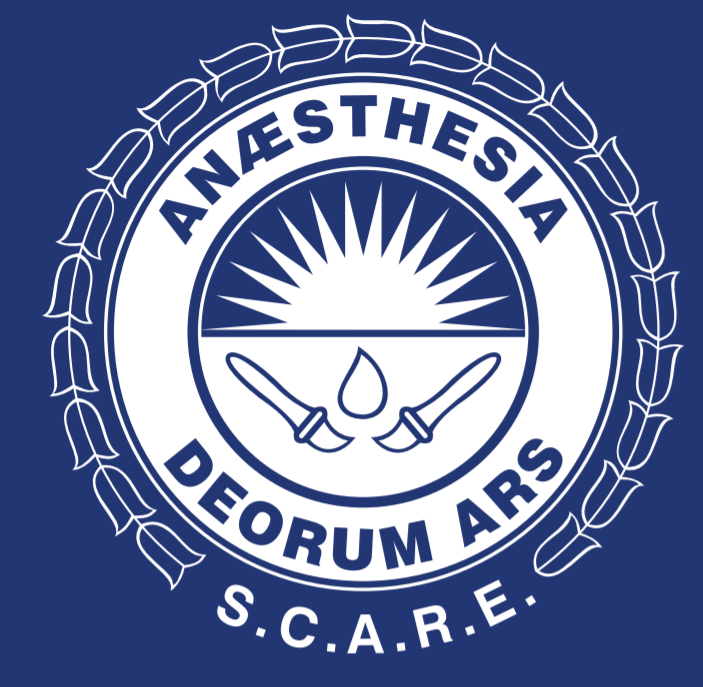Delirium in the elderly patient after anesthesia: associated factors
Abstract
Introduction:
Postoperative delirium is defined as an acute confusional state with altered levels of attention and consciousness. It presents for a short period of time with a transient and fluctuating evolution, with long-term outcomes of cognitive dysfunction. It has been observed mostly in extreme age groups and has been associated with factors that increase the risk of occurrence.
Objective:
To identify any factors associated with the development of postoperative delirium in the elderly following anesthesia.
Materials and methods:
An analytical cross-section study was conducted in elderly patients receiving anesthesia at a second-level hospital, from November 2016 to November 2017. The confusion assessment method was used based on 4 items for making the diagnosis of delirium. The data obtained were statistically analyzed with measures of central tendency, and the risk probability was estimated.
Results:
A total of 100 patients aged between 60 and 93 years old were studied, with postoperative delirium present in 18% of the sample. There was a statistically significant association among patients with severe pain, those with a low level of education, and those who did not have a stable partner.
Conclusion:
It is important to study the postoperative delirium factors to be able to identify the population at higher risk of experiencing postoperative delirium, with a view to reducing the number of long-term complications.
References
2. Taylor D, Lewis S. Delirium. J Neurol Neurosurg Psych 1993;56:742-751.
3. Jankowski CJ, Trenerry MR, Cook DJ, et al. Cognitive and functional predictors and sequelae of postoperative delirium in elderly patients undergoing elective joint arthroplasty. Anesth Analg 2011;112:1186-1193.
4. Markar SR, Smith IA, Karthikesalingam A, et al. The clinical and economic costs of delirium after surgical resection for esophageal malignancy. Ann Surg 2013;258:77e81.
5. Ocádiz-Carrasco J, Gutiérrez-Padilla RA, Páramo-Rivas F, et al. Preventive program for postoperative delirium in the elderly. Cir Cir 2013;81:181-186.
6. Popp J, Arlt S. Prevention and treatment options for postoperative delirium in the elderly. Curr Opin Psychiatr 2012;25:515-521.
7. Radtke FM, Franck M, MacGuill M, et al. Duration of fluid fasting and choice of analgesic are modifiable factors for early postoperative delirium. Eur J Anesth 2010;27:411-416.
8. Leung J, Sands L, Wang Y, et al. Apolipoprotein E e4 allele increases the risk of early postoperative delirium in older patients undergoing noncardiac surgery. Anesthesiology 2007;107:406-411.
9. Monk TG, Price CC. Postoperative cognitive disorders. Curr Opin Crit Care 2011;17:376-381.
10. Vaurio LE, Sands L, Wang Y, et al. Postoperative delirium: the importance of pain and pain management. Anesth Analg 2006;102:1267-1273.
11. Inouye SK, van Dyck CH, Alessi CA, et al. Clarifying confusion: the confusion assessment method. A new method for detection of delirium. Ann Intern Med 1990;113:941-948.
12. Benavides-Caro CA. Anesthesia and the elderly patient, seeking better neurological outcomes. Rev Colomb Anestesiol 2016;44:128-133.
13. Carrillo R, Medrano T. Delirium and postoperative cognitive dysfunction. Rev Mex Anest 2011;34:211-219.
14. Winter A, Steurer MP, Dullenkopf A. Postoperative delirium assessed by post anesthesia care unit staff utilizing the Nursing Delirium Screening Scale: a prospective observational study of 1000 patients in a single Swiss institution. BMC Anesthesiol 2015;15:184.
15. Hernández AS, Sánchez J. Anesthetic factors associated with postoperative cognitive deterioration in the geriatric patient. Rev Mex Anest 2014;37 (suppl 1):S349-S351.
16. Guenther U, Riedel L, Radtke FM. Patients prone for postoperative delirium: preoperative assessment, perioperative prophylaxis, postoperative treatment. Curr Opin Anaesthesiol 2016;29:384-390.
17. Bedford PD. Adverse cerebral effects of anaesthesia on old people. Lancet 1955;2:259-263.
18. Bekker A, Korban A, Esochaghi S. Long-term cognitive decline in the elderly is not attributable to surgery/anesthesia. Int J Anesth Res 2017;5:490-493.
19. Wassenaar A, van den Boogaard M, van Achterberg T, et al. Multinational development and validation of an early prediction model for delirium in ICU patients. Intens Care Med 2015;41:1048-1056.
20. Drews T, Franck M, Radtke FM, et al. Postoperative delirium is an independent risk factor for posttraumatic stress disorder in the elderly patient: a prospective observational study. Eur J Anaesthesiol 2015;32:147-151.
21. Scott J, Mathias J, Kneebone A. Postoperative cognitive dysfunction after total joint arthroplasty in the elderly: a meta-analysis. J Arthroplasty 2014;29:261-267.
22. Ramsay M. The biological cost of the depression of consciousness. Rev Colomb Anestesiol 2015;43:119-121.
Downloads
Altmetric
| Article metrics | |
|---|---|
| Abstract views | |
| Galley vies | |
| PDF Views | |
| HTML views | |
| Other views | |














